Leaders from liberal arts universities across Asia gathered at Duke Kunshan University for the Annual Presidents’ Forum of the Alliance of Asian Liberal Arts Universities, where speakers called for new, cross-disciplinary models to address complex global challenges such as climate change, public health and artificial intelligence.
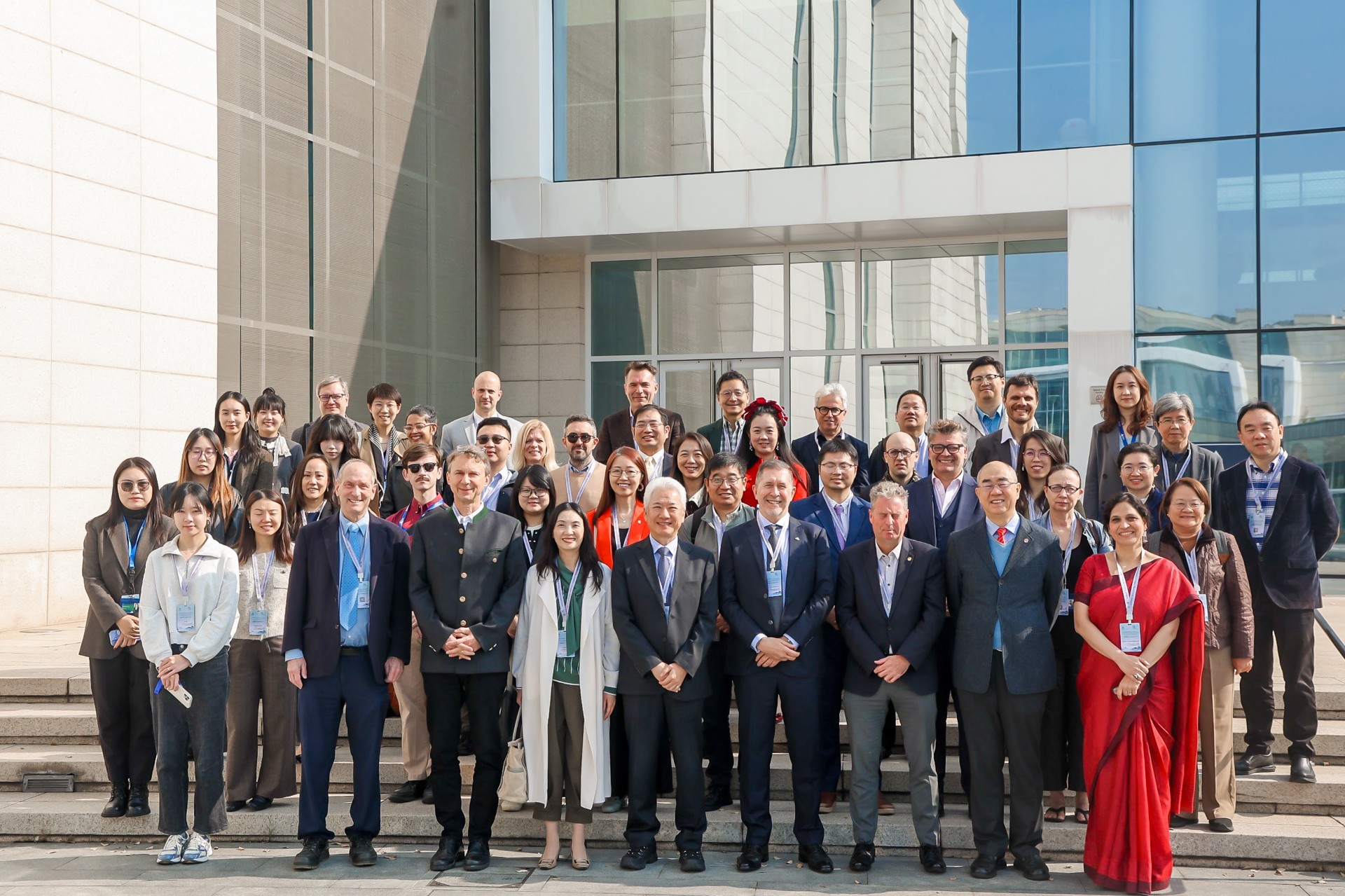
The three-day forum, held Nov. 13–15, convened senior administrators, faculty members and students from nearly 20 institutions. The event featured opening remarks, keynote addresses, student-led sessions and 14 thematic panels on interdisciplinary curriculum design, experiential learning, data science education, language learning and the role of liberal arts in Asian higher education systems.
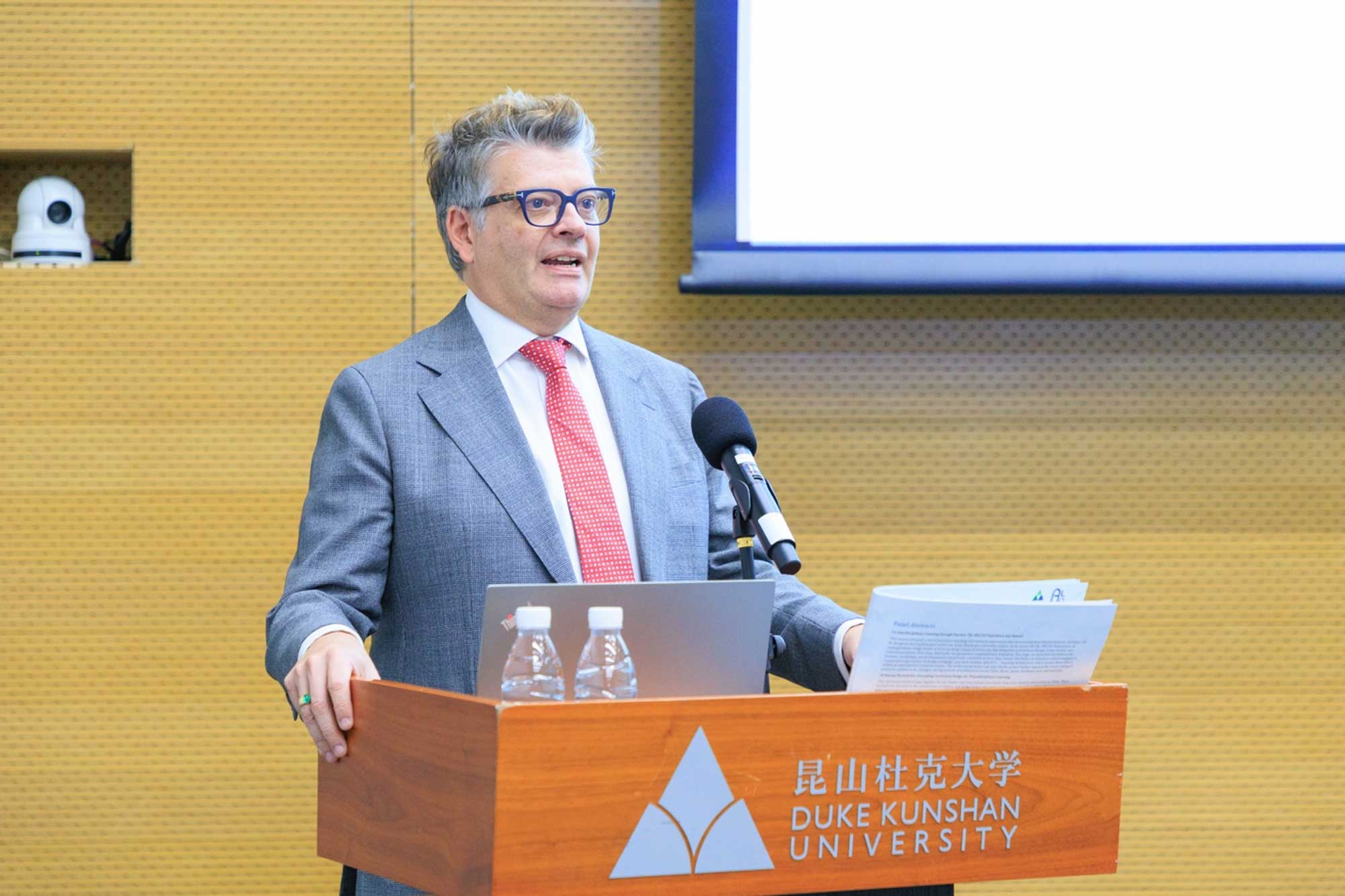
James Miller, DKU’s associate dean for interdisciplinary initiative and chair of the organizing committee, described how the university’s curriculum, budget system and physical layout were designed to break down academic silos. Interdisciplinarity, he said, is not simply a technique but a value choice.
“Interdisciplinarity is a form of resistance to the forces that push universities toward ever narrower specialization,” Miller said. “The world’s most urgent problems are not disciplinary problems, and our education systems shouldn’t treat them as if they were.”
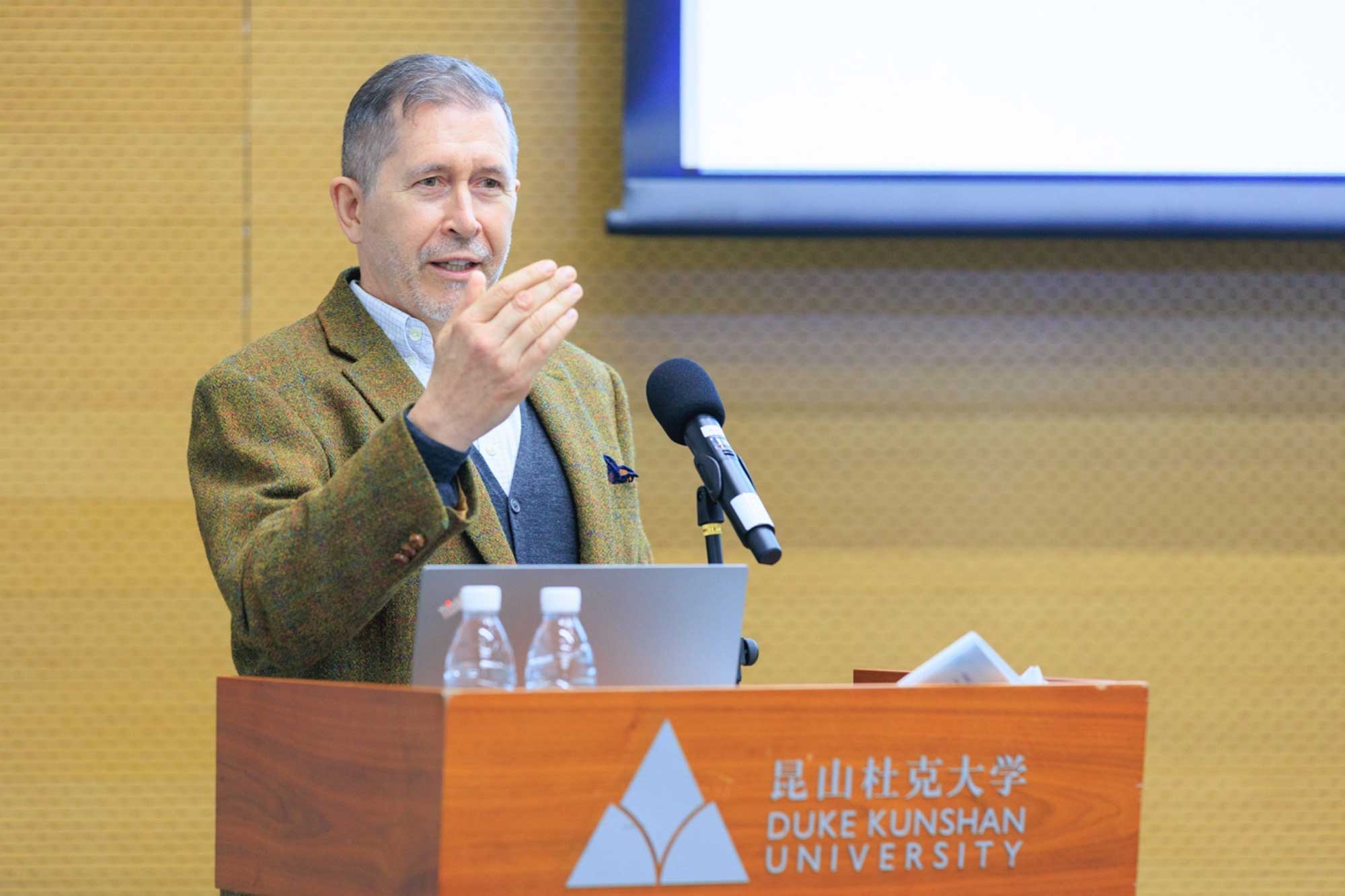
Scott MacEachern, vice chancellor for academic affairs, said recent global crises had underscored the need for institutions to think beyond single fields.
“Pandemics are not merely biological phenomena — they’re social, cultural and political,” he said. “When you confront a problem that complex, you immediately see why interdisciplinary responses are essential.”
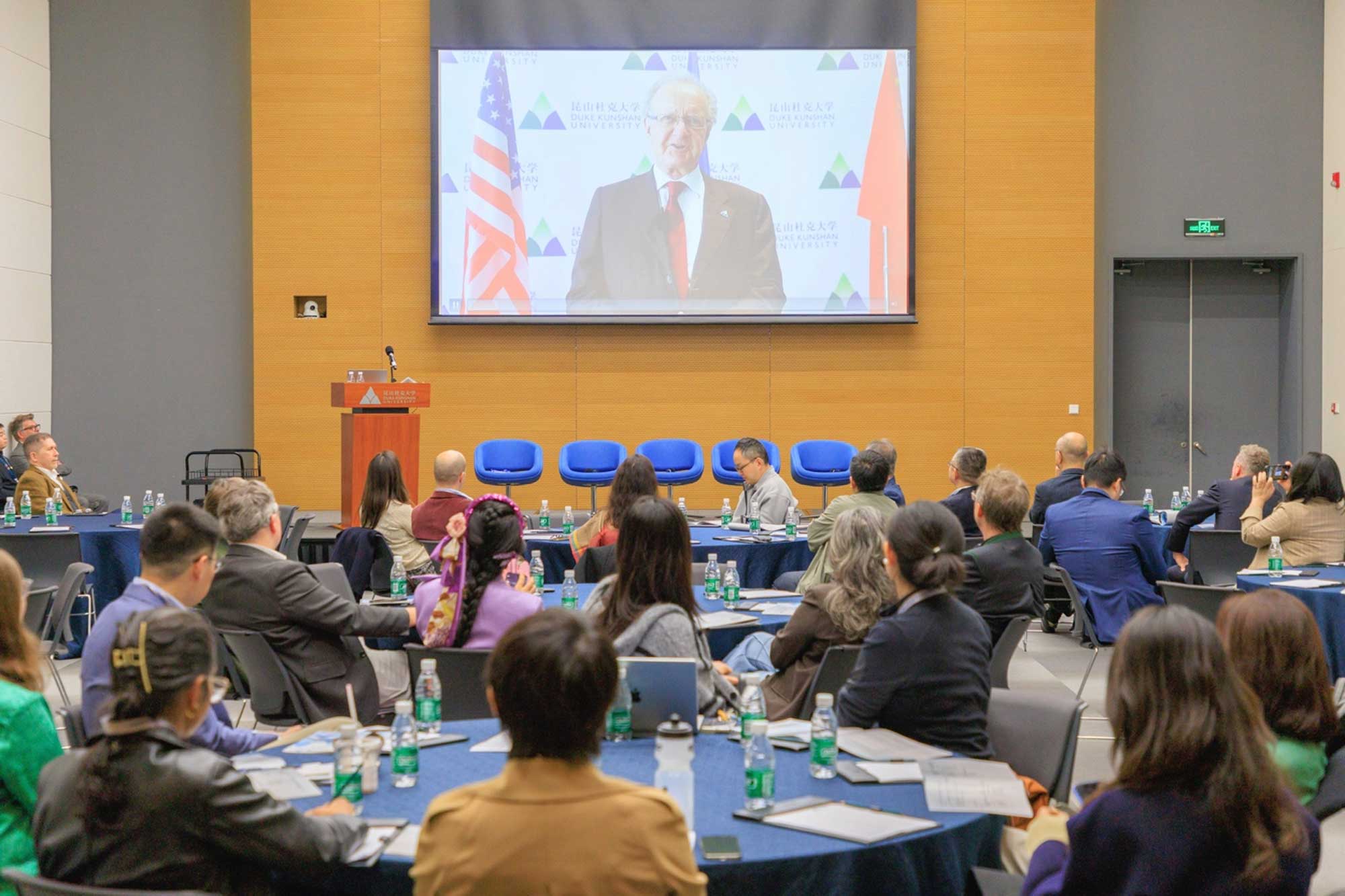
Executive Vice Chancellor John Quelch delivered a video message, calling interdisciplinarity central to DKU’s mission and emphasizing that universities across Asia share a responsibility to modernize liberal arts models for their own regional contexts.
“Climate change, public health and ethical artificial intelligence do not respect traditional academic boundaries,” Quelch said. “They demand integrated solutions, and no single institution can develop those models alone.”
Haipeng Guo, dean of the School of General Education and director of the Center for Whitehead Studies at Beijing Normal University–Hong Kong Baptist University (BNBU), delivered a keynote address, tracing the 20-year evolution of BNBU’s liberal arts curriculum and suggesting that whole-person education requires bridging disciplinary knowledge with real-world practice.
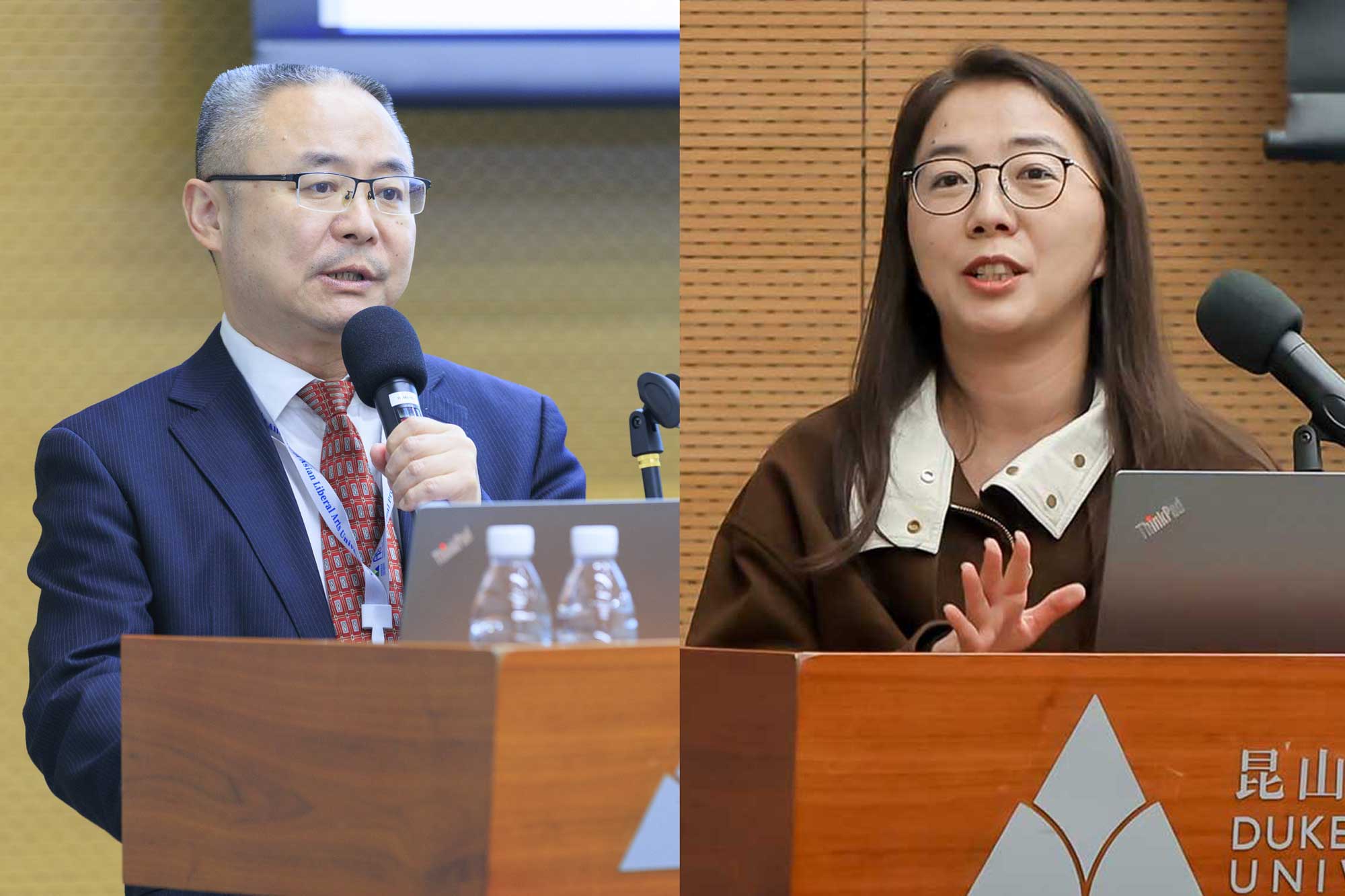
Another keynote was presented by Jiawen Han, associate professor of architecture at Xi’an Jiaotong Liverpool University, who examined how digital-era education risks reinforcing disciplinary silos if overly theory-focused. Han advocated for practice-based, community-facing teaching, including fieldwork, media projects and public exhibitions, to help students connect ideas to real-world conditions.
Representatives from Lingnan University, East China Normal University, Tunghai University, Chiang Mai University, Symbiosis International University and The Hang Seng University of Hong Kong also delivered remarks outlining reforms in liberal arts teaching, including efforts to integrate humanities, social sciences and STEM fields.
Students played an active role in the event. One evening session, “Friend or Foe: Best Practices Surrounding the Use of ChatGPT or DeepSeek in Interdisciplinary Learning and Assessment,” featured a moderator from Lingnan University and a DKU student panelist discussing the promises and risks of generative AI tools. Another special event organized by dKunst Art on Campus, curated by Zairong Xiang, DKU’s director of arts, brought Singaporean artist and filmmaker Ho Rui An to DKU for a screening of his 2025 documentary “The World of Lines,” followed by a conversation with visiting film scholar Rosa Barotsi of the University of Modena and Reggio Emilia and DKU students Yueqi Dou, Haoxin Feng, and Yuting Zeng, who collaborated with Ho on research for the film in 2023.
Throughout the forum, delegates joined roundtable discussions on interdisciplinary curriculum design, student leadership development, writing across the curriculum, community-based learning, language education and the role of liberal arts programs in Asia’s higher-education landscape. Several sessions examined how to integrate disciplinary expertise while avoiding what Miller described as a “monoculture of the research university.”
Founded in 2017, the Alliance of Asian Liberal Arts Universities promotes cooperation among institutions seeking to advance interdisciplinary liberal arts education across the region.

